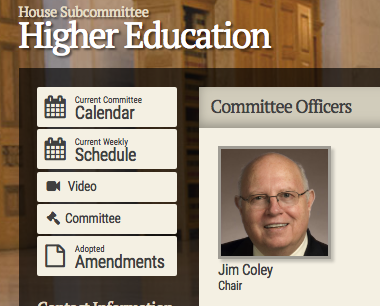House makes it easier for public to see bill amendments earlier
In what may seem like a small tweak, the Tennessee House of Representatives has added a new feature to the bill tracking process online that will add a great deal more public transparency into amendments earlier.
Tennessee House Speaker Glen Casada said that amendments that are added in a House subcommittee will now go directly online so that the public can see them instead of waiting until the amendment passes a full committee.

Previously, bill amendments may not have gone online until weeks later
The change will allow the public and others who track bills to quickly get access to amendments, which is important because amendments added in subcommittee can often “rewrite” the bill and reveal key details.
Prior to the change, the only way the public would know the bill’s intent would be to watch the subcommittee’s proceedings in person or on video and request a copy of the amendment from the legislative sponsor.
The amendment may not have been put online until weeks later, after the full standing committee had debated and voted to approve it.
Casada: Change makes information more accessible to public
“This change will create greater transparency and make information more readily available and accessible to the public,” said Speaker Casada. “It is a long overdue change and will be a valuable tweak to our current award- winning website.”

Various groups had asked for and supported the change, and former speaker Beth Harwell had started the process with the House clerks and information services team.
In an email to members earlier this year, Harwell said, “… I realize there is often confusion regarding what action is taken by the subcommittees. To that end, you can now see those amendments that were adopted on each subcommittee’s page on the website. On the left of each page you will see a tab entitled ‘Adopted Amendments.’ The amendments passed by the subcommittee will be listed there for each day, and we have retroactively posted these for the 110th General Assembly. “
The amendments will show up on the subcommittee’s page first, instead of with the bill’s page, because an amendment is not officially on a bill until a full standing committee votes on it.




